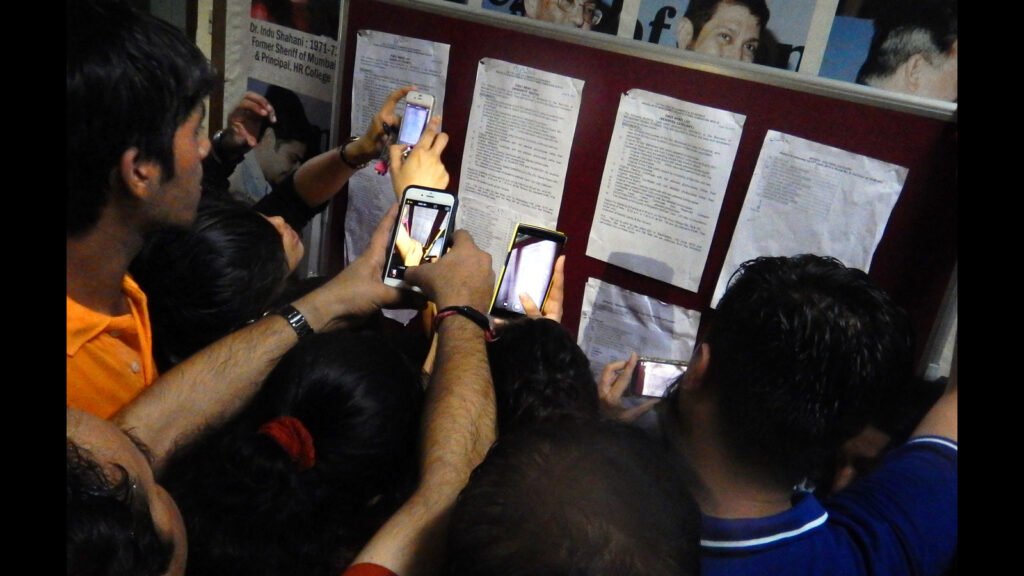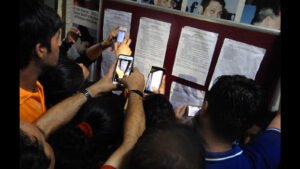
Even in a volatile world of supply-chain decoupling, technological disruption, and immigration uncertainty, one truth holds steady — talent is global and mobile. Every nation today competes not just for investments, but for skilled professionals who can build resilience and drive innovation.

The 2025 Nobel Prize in Economics reminds us of a simple truth: The future will belong to societies that can spot talent, validate it, and help it move where it’s valued most.
Yet, while talent flows freely, the infrastructure has not kept pace. Degrees, certificates, and vocational credentials remain trapped in institutional silos — hard to verify, slow to authenticate, and inconsistently recognized across borders. This friction adds costs for workers and employers: redundant training, hiring delays, and an erosion of trust in qualifications.
From digital identity to trust infrastructure:For decades, the way we prove what we know has barely changed. Degrees sit in drawers and gather dust. Employers still chase signatures and stamps. It’s a slow, leaky system built for an analogue world — one that hasn’t kept pace with global talent on the move.
Blockchain technology may have a solution here — make credentials tamper-proof, decentralized, and globally verifiable. It shifts us from mere digitization to an interoperable network of skills and qualifications — an internet of trust.
Picture an Indian semiconductor engineer whose certification from the India Semiconductor Mission, postgraduate degree from IIT, and micro-credentials from a US platform all live on a single blockchain-backed profile. A recruiter in Japan or Germany could verify everything instantly — no intermediaries, no endless back-and-forth. The same applies to a nurse, a coder, or a construction supervisor. Blockchain turns fragmented records into a trusted passport for global employability.
And it tackles a problem we’ve long ignored: fraud. Fake degrees and counterfeit training certificates erode faith in institutions, and in its people. A verifiable credential makes dishonesty expensive. It builds confidence for employers, and also for honest workers, whose credibility deserves to travel freely across borders.
India’s moment to lead: India already has the building blocks. Its Digital Public Infrastructure (DPI) — from Aadhaar to Unified Payments Interface (UPI) — has transformed identity, payments, and public services. Education and skilling should be the next frontier.
DigiLocker, the National Academic Depository, the Academic Bank of Credits, and the APAAR ID have digitized millions of records. The CBSE’s Academic Blockchain Documents project has taken early steps towards blockchain-secured certificates. But, these systems still operate in silos.
What India needs now is a National Learning Wallet — a unified, blockchain-powered architecture that connects every board, university, and skilling body into a single, verifiable network. Built on global standards like W3C Verifiable Credentials and Decentralized Identifiers, it would integrate every credential — from school certificates to advanced professional courses — into a secure, interoperable, and instantly verifiable ledger.
Such a move would do for learning what UPI did for payments: Make verification seamless, universal, and trusted. It would turn learning into a public good — accessible, portable, and globally recognized.
A system that grows with you: A blockchain-backed Learning Wallet would let every worker carry a living record of their education and experience. A student moving from Patna to Pune, or from India to France, could present verified credentials in seconds. Employers could validate authenticity instantly. Regulators could ensure compliance without bureaucracy.
More importantly, it would make learning lifelong and cumulative. Every course, apprenticeship, and micro-credential could build toward a portable, verifiable profile of skills. For gig and informal workers — who make up nearly 80% of India’s workforce — this would mean recognition, access to credit, and fairer wages. A verified work and training history could finally unlock social protection and financial inclusion for millions.
For policymakers, real-time visibility of national skill data would enable evidence-based workforce planning, and targeted skilling interventions. For employers, it would mean hiring faster and smarter. And for individuals, it would mean freedom, and the ability to move, learn, and work across borders without losing credibility.
The global race for trusted talent: Countries have developed standards for talent credentials. Singapore’s OpenCerts allows blockchain verification of degrees. The European Union’s Blockchain Services Infrastructure enables cross-border recognition of qualifications. The UAE and Malta have built national frameworks for secure digital diplomas.
India can go further. By scaling blockchain credentialing across education, skilling, and employment, it can become the world’s most trusted talent hub — where every degree, apprenticeship, and micro-credential is instantly verifiable anywhere.
Blockchain-based credentialing doesn’t just make learning legible.It makes labor markets more efficient, inclusive, and growth-oriented. Employers save on the cost of verification. Governments gain visibility. Workers gain recognition and mobility. And the economy gains speed.
Making skills travel as fast as talent: Blockchain is not just a technological tool — it’s the next layer of India’s trust infrastructure. By embedding verifiable, interoperable, and portable credentials within a public framework, India can ensure that skills travel as fast as talent.
In a world where innovation drives growth and trust drives opportunity, such a system won’t just accelerate India’s economy — it will make India the engine of trusted global talent.
Arvind Gupta is an adjunct professor, data and digital economy at IIT-BHU, and head, Digital India Foundation. Priyank Narayan is the Founding Director at the Center for Entrepreneurship at Ashoka University. The views expressed are personal






